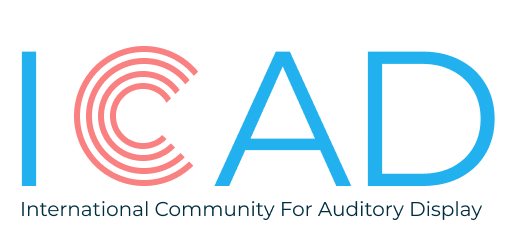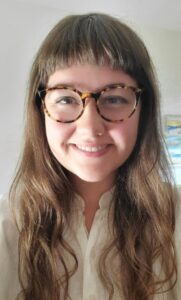ICAD 2019 Think Tank Student Scholar
So, who are you?
I’m a humanities researcher interested in the relationships between science, environmental change, and sound. Most of my relationship to sonification and ICAD has been through the research I conducted for my master’s degree in Historical Musicology at Florida State University, which focused on data sonification and data-driven music as climate science communication tools. My current research has veered away from sonification and data-driven music a bit – I’m currently working in a master’s program in Environmental Studies at the University of Oregon where my research explores the environmental justice implications of noise pollution legislation in a wilderness area in northern Minnesota. I’ve been mulling over my sonification-related thesis research, though, and know I’m not anywhere near done with it!
How did you end up working on Sonification and Auditory Displays?
I was scrolling through Facebook one day and encountered a video that claimed to be “the sound of climate science”. I had seen a number of these viral videos before, and was intrigued by their popularity and their claims to exist somewhere between artistic practice and scientific communication method. I was looking for a project that engaged with both my main areas of interest – my undergraduate degrees were in biology and music performance – and these videos and online sound files fit the bill. After a few deep-dives into Google searches (what in the world was sonification, anyway??), I was hooked and have come to love the productive tension and complexity within both the ICAD community and sonifications/data-driven music/auditory display themselves.
What is the role of Sonification/Auditory Display in your research?
I do not create sonifications or compose music myself, although I’ve tinkered a bit and have plans to learn more. I am interested in sonifications and data-driven music (and the sometimes-ambiguous line between these categories) as cultural products. So, I have used certain projects created by other people to interrogate the complexities surrounding science communication, the involvement of the arts or artistic techniques in environmental activism and in scientific work, and use of sound not intended to be artistic within scientific methods.
What is the most challenging part in your work?
The most challenging part of my research is working through the complexities involved with sonifications and attitudes about them by both listeners and sonification developers. This includes occasional difficulty with rigid adherence to perceived disciplinary boundaries or primary research methodologies and practices. This includes my frustrations with my own primary research area of musicology and the sometimes outdated definitions of music and sound (and an accompanying lack of acknowledgement of the degree to which any such definitions are heavily laden with values). Creation and reception of sonifications involves so much complexity, but this is exactly why I find them so fascinating.
Anything special ICADders should know about you?
I’m primarily driven by questions of social and environmental justice and am trying to keep a running list of sonification and data-driven music projects that engage with justice issues. If anyone is working on something like this or knows about a project, please do send info about it my way!
What would you like to say to ICADders?
This sounds like a bit of a cliché, but I’ll write it because it’s true even so: I would love to thank the ICAD community for welcoming me despite my slightly unconventional background as a humanities researcher. I attended my first ICAD in Newcastle in 2019 and was blown away by the generous acceptance of my research approach and reception of my questioning. I look forward to attending future meetings!
What is your favorite sonification/auditory display ever?
Brian Foo’s “Data-Driven DJ” creations are simple but compelling representations of social and cultural issues (https://datadrivendj.com/). I especially love those that combine spatial data and sound because these tracks often involve an extra layer of creativity.
What is the study/tool/work in the field of auditory display you are most proud of?
I am absolutely enthralled by the body of scholarship by Alexandra Supper – her research is sharp, compassionate, and captivating. Anyone involved with ICAD who hasn’t already done so should take a moment to check out her work.
Any way to learn more about your work or reach out to you?
I’d love to communicate with folks! My email address is bhilgren@uoregon.edu.


